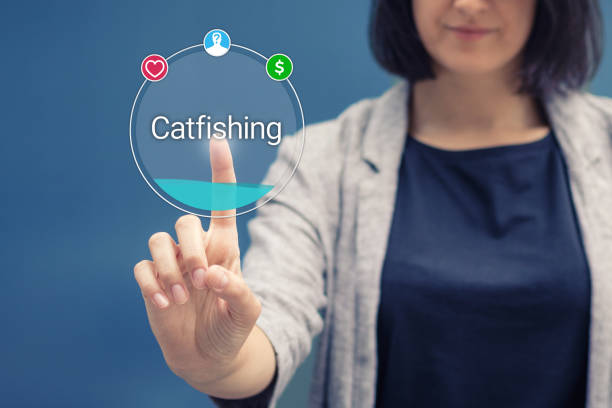
Unmasking the Truth: What Are the Dangers of Catfishing
In the vast, unpredictable ocean of online dating, catfishing lurks as one of the most alarming dangers. If you’ve ever wondered, “What are the dangers of catfishing?”, the answer is a tangled web of emotional manipulation, financial scams, and serious psychological impacts. This post dives into the hazards, helping you navigate the murky waters of internet deception with humor and practicality. Buckle up—you’re in for a ride!
Hook, Line, and Sinker: What Is Catfishing, and Why Should You Care?
Picture this: you meet the “perfect” person online. They’re attractive, witty, and share your love for pineapple pizza (because who doesn’t, right?). But as your connection deepens, cracks appear. Their camera is always “broken,” their stories don’t add up, and soon, you’re wondering: are they even real?
Welcome to the world of catfishing—a term that describes the act of creating a fake online identity to deceive someone. While it might sound like the plot of a Netflix drama, it’s an all-too-common reality with serious consequences. So, what are the dangers of catfishing? Let’s dive in.
The Emotional Rollercoaster: Why Catfishing Hurts So Much
Catfishing isn’t just a harmless prank—it’s a deeply personal betrayal. One of the primary dangers of catfishing lies in its emotional toll. Victims often invest time, energy, and feelings into these false relationships, only to discover the truth in the most crushing way possible.
- Betrayal of Trust: Learning someone isn’t who they claim to be can make you question your ability to trust others moving forward.
- Emotional Manipulation: Many catfishers exploit their victims emotionally, using guilt, flattery, or sob stories to keep the charade going.
- Psychological Impact: The feelings of embarrassment, shame, and heartbreak can linger long after the truth is revealed.
Financial Fraud: The Price of Trusting the Wrong Person
What are the dangers of catfishing when money gets involved? Spoiler alert: they’re huge. Financial scams are a common motive behind catfishing, with victims losing thousands (or even millions) of dollars worldwide.
- Fake Emergencies: The classic “I need money for an emergency” ploy preys on empathy.
- Identity Theft: Sharing personal information with a catfish can lead to stolen identities and financial ruin.
- Investment Scams: Some catfishers pose as successful professionals to lure victims into fraudulent schemes.
The Legal Fallout: When Catfishing Gets Serious
While the emotional and financial dangers of catfishing are bad enough, there’s also a legal dimension to consider. Depending on the circumstances, catfishing can lead to:
- Lawsuits: Victims may take legal action against their deceivers for emotional distress or financial damages.
- Criminal Charges: If the catfisher commits fraud, extortion, or other crimes, they could face prosecution.
- Reputation Damage: Both victims and perpetrators risk tarnished reputations when the truth comes out.

How to Spot a Catfish Before You Get Reeled In
Avoiding the dangers of catfishing starts with being vigilant. Here’s how to spot the signs:
- Too Good to Be True: If they seem perfect in every way, proceed with caution.
- Avoidance Tactics: Excuses about broken cameras or canceled meetups are major red flags.
- Vague Answers: If their backstory is inconsistent or full of holes, dig deeper.
- Requests for Money: This is a glaring red flag—never send money to someone you’ve never met in person.
The Healing Process: Moving On After Being Catfished
If you’ve fallen victim to catfishing, know that you’re not alone. The aftermath can be tough, but healing is possible. Start by:
- Seeking Support: Talk to friends, family, or a therapist about your experience.
- Reporting the Incident: Notify the platform where you met the catfish and, if necessary, law enforcement.
- Rebuilding Confidence: Remember, the deception reflects on the catfisher—not you.
Final Thoughts: What Are the Dangers of Catfishing?
The dangers of catfishing are far-reaching, impacting victims emotionally, financially, and sometimes legally. While the internet has made it easier to connect with others, it has also made deception more accessible. By staying informed and vigilant, you can protect yourself from falling into a catfisher’s trap.
So, the next time you’re chatting with someone online, remember to keep your wits about you. After all, in the world of dating, it’s better to be a skeptic than a sucker. If you have been “Catfish” please share your story down below in the comments!


